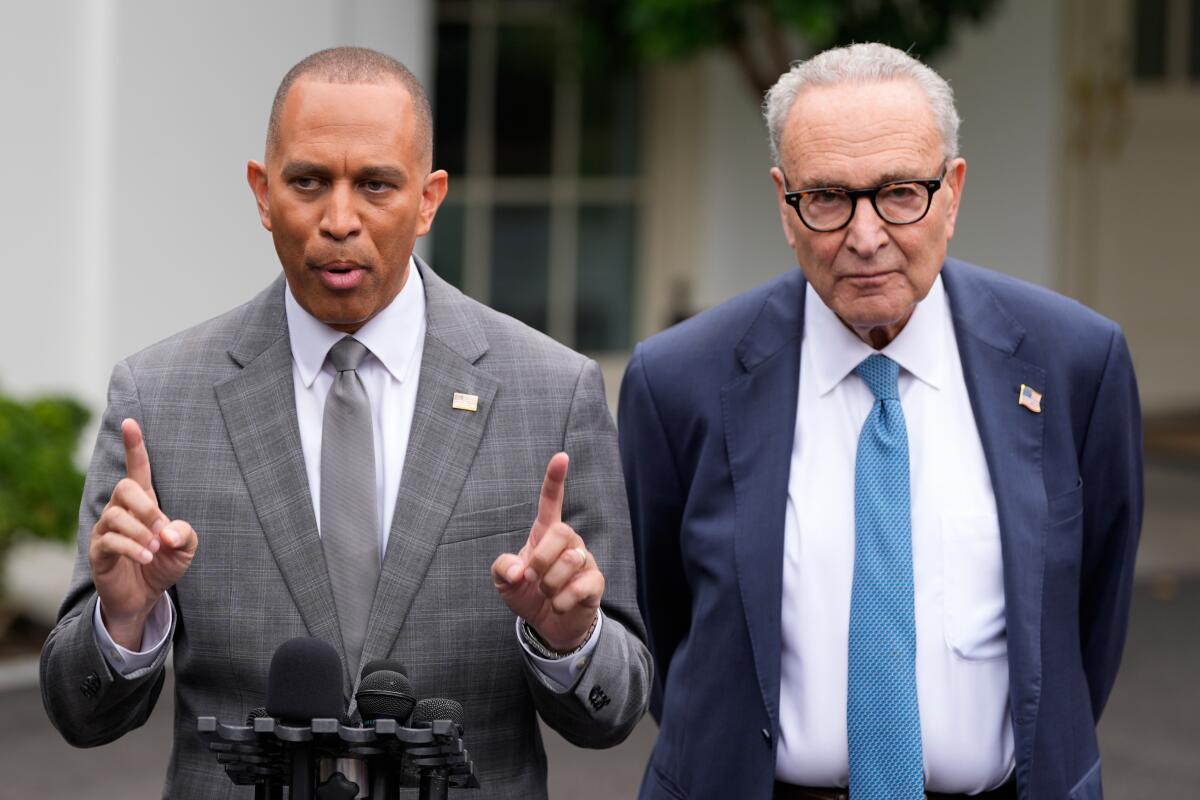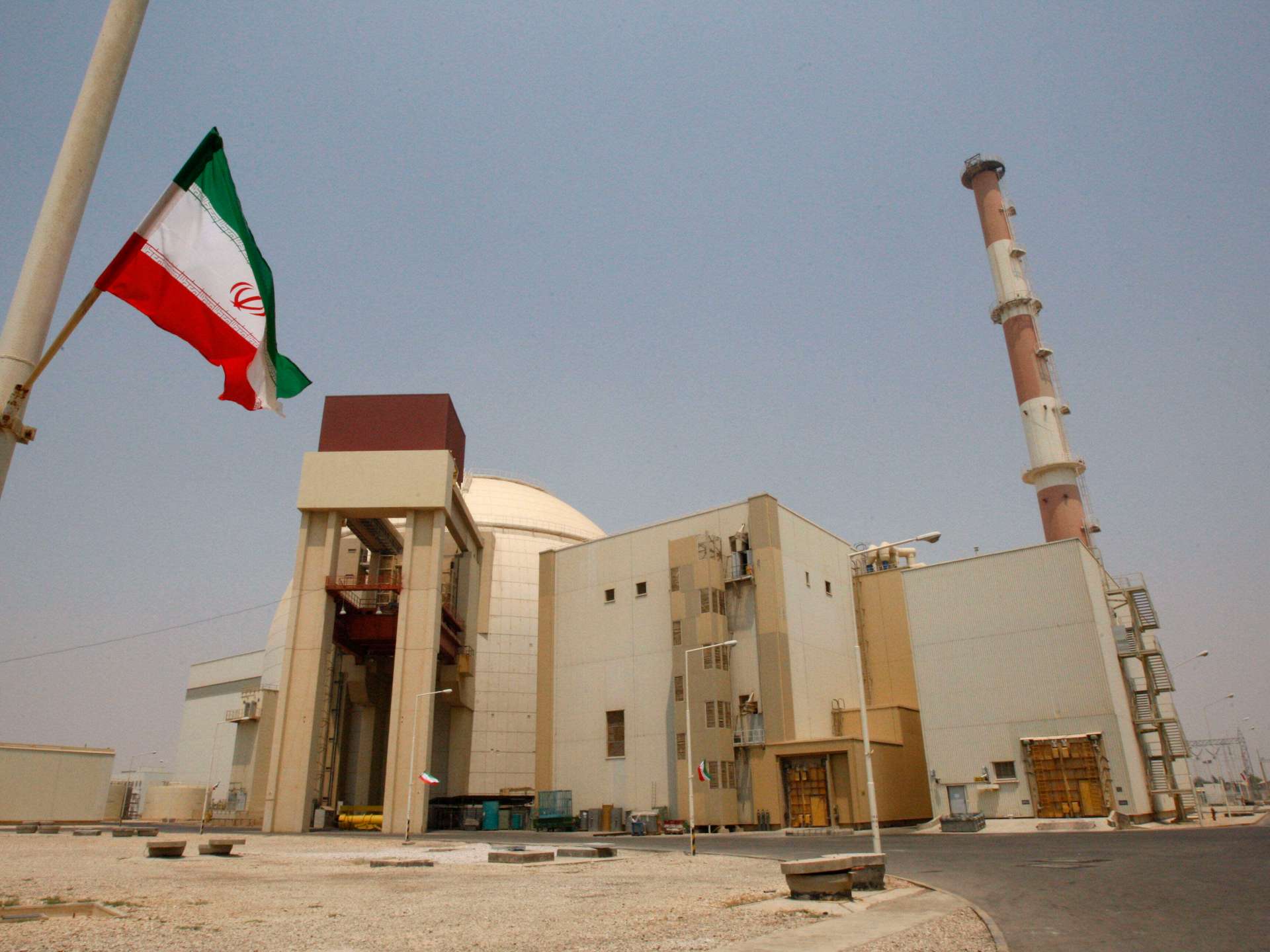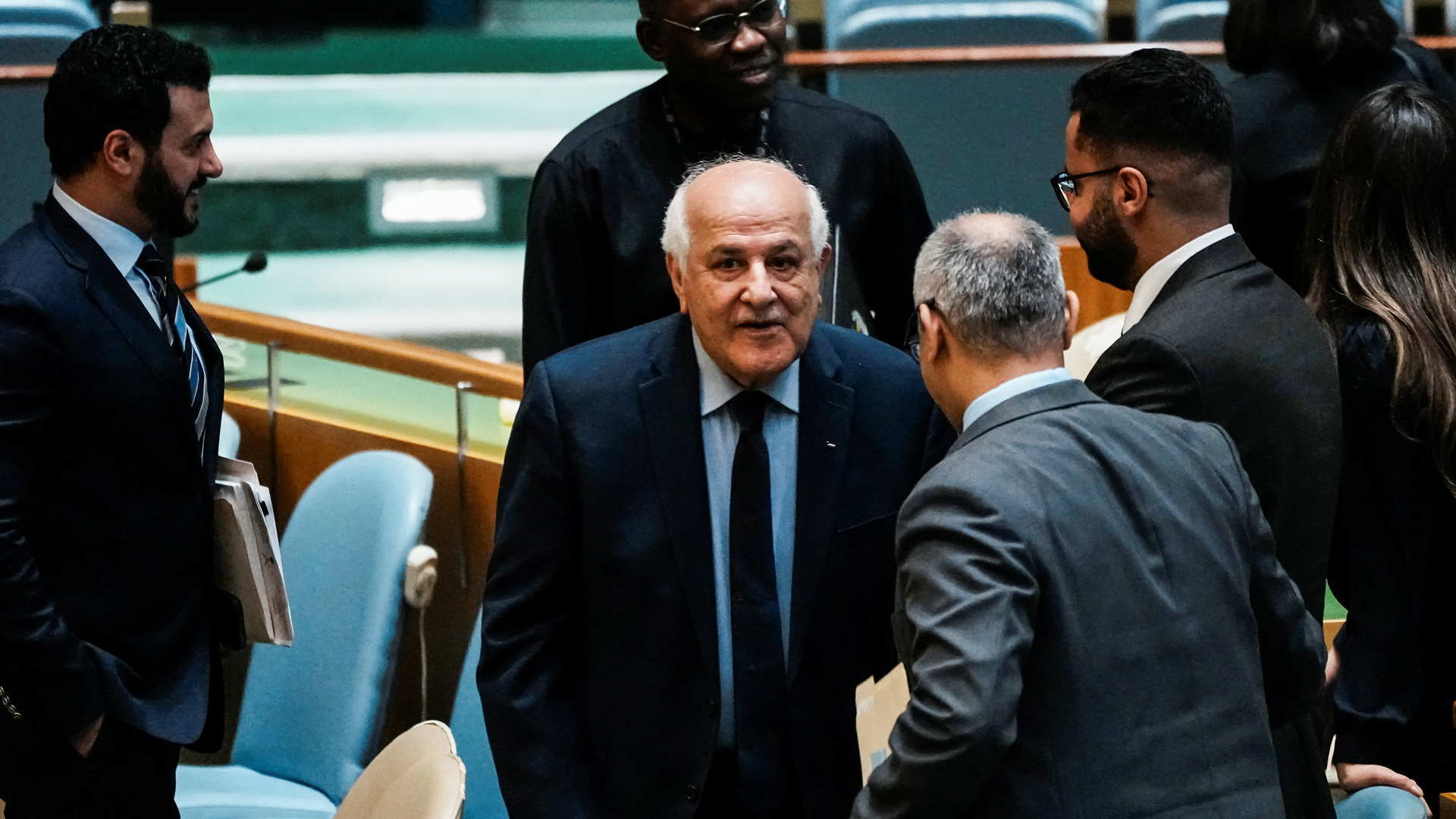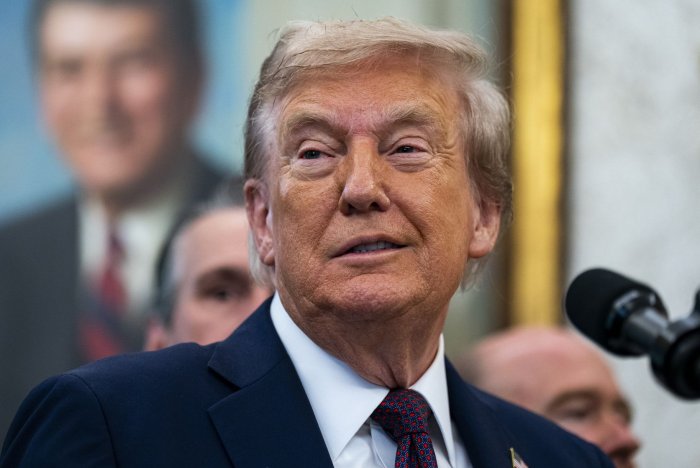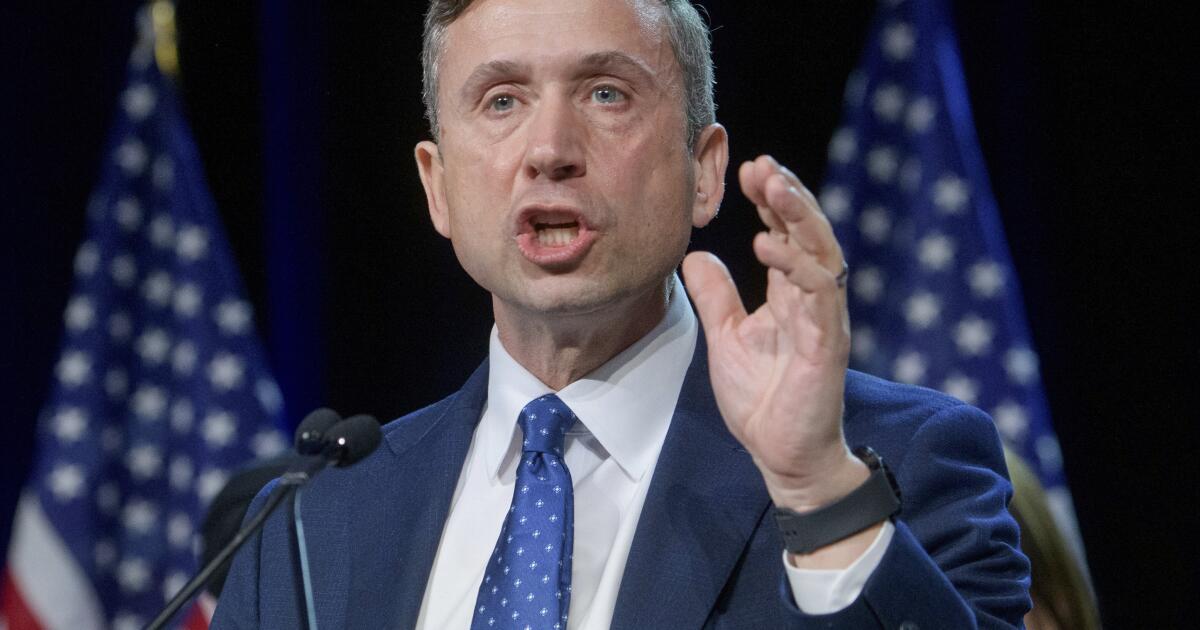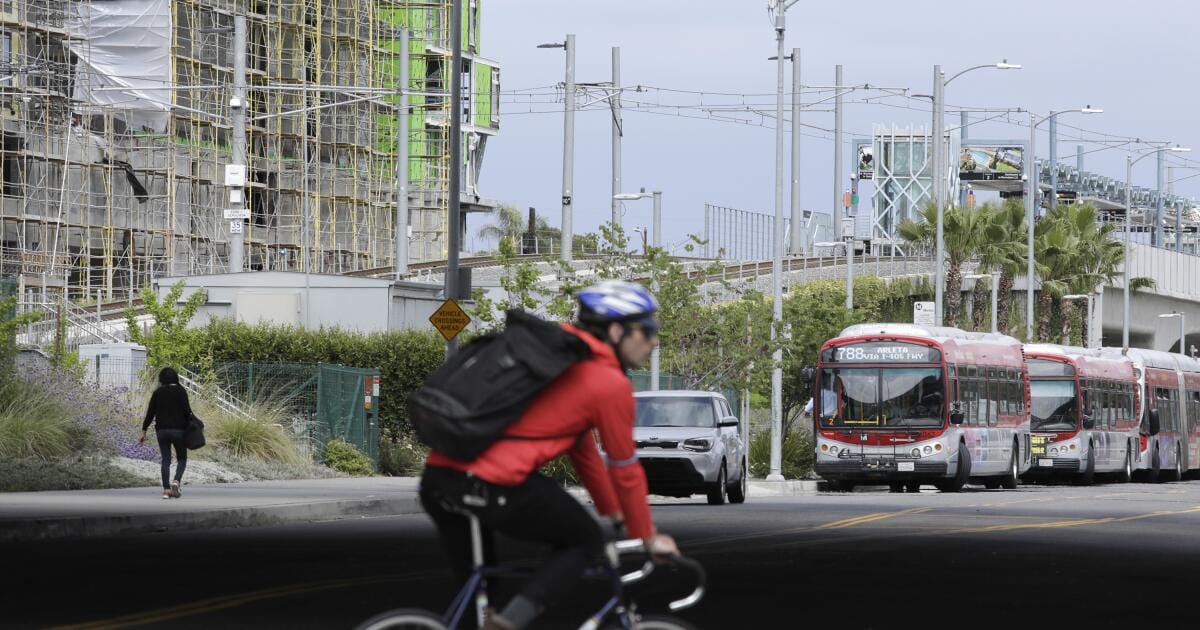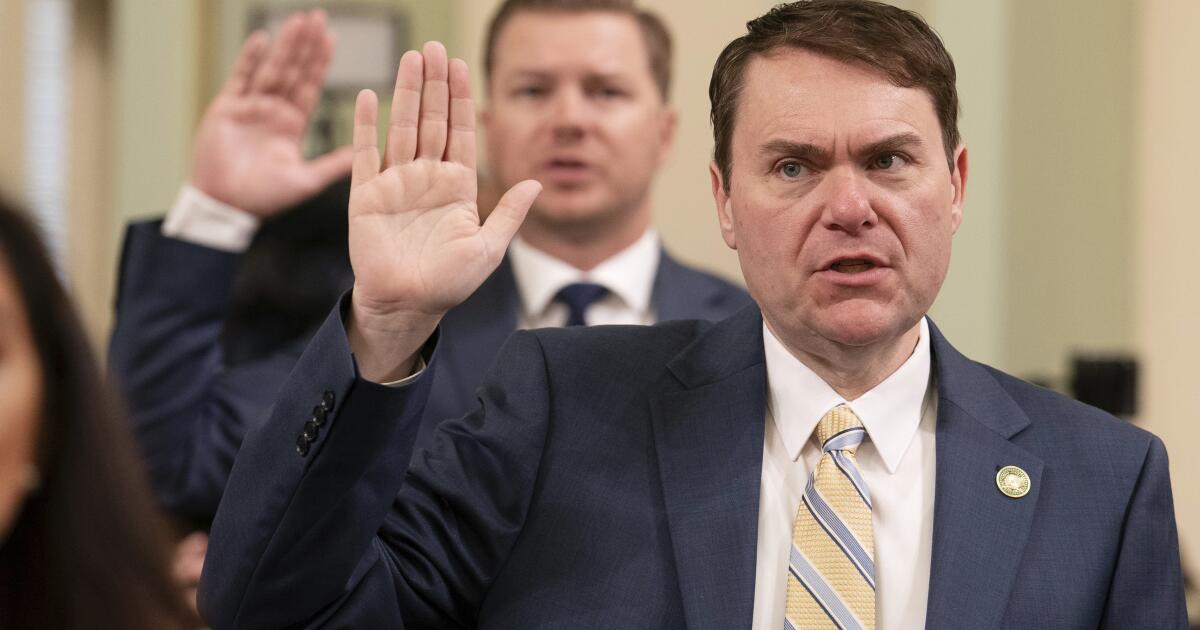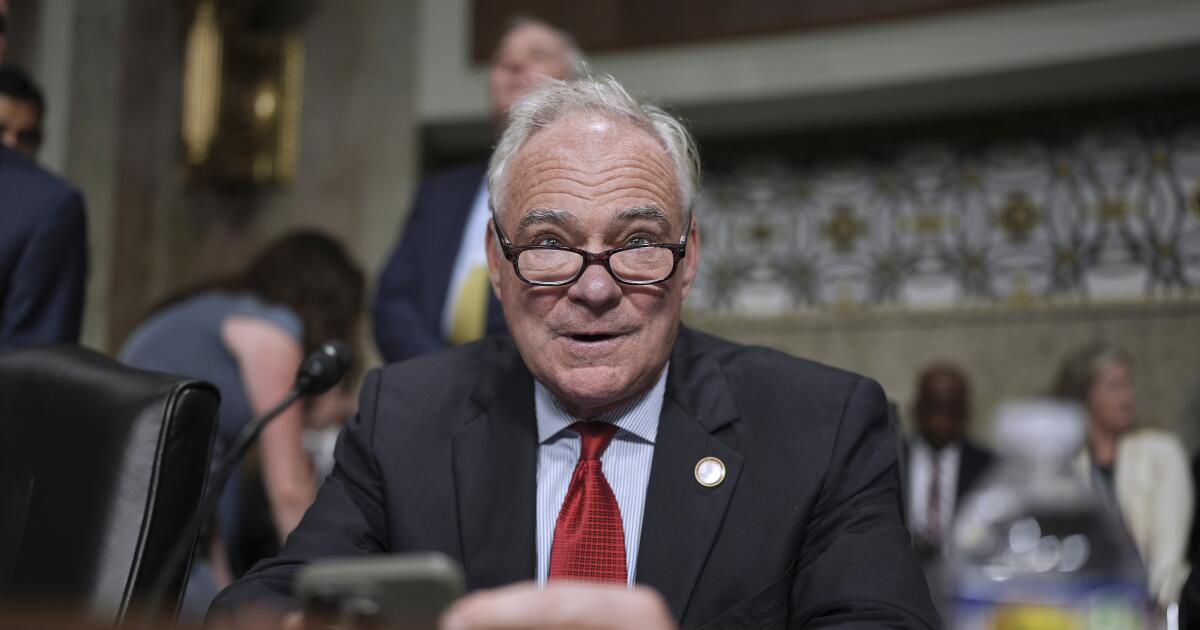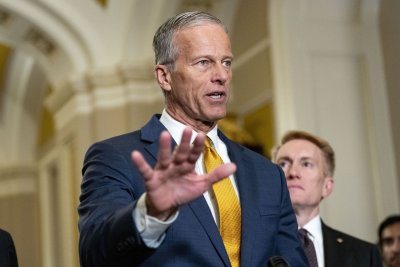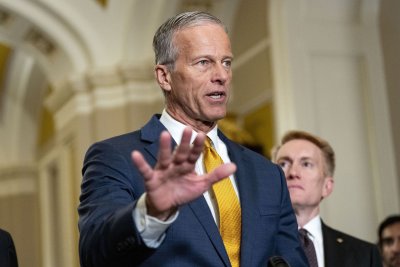MINNEAPOLIS — Ken Martin is in the fight of his life.
The low-profile political operative from Minnesota, just six months on the job as chairman of the Democratic National Committee, is charged with leading his party’s formal resistance to President Trump and fixing the Democratic brand.
“I think the greatest divide right now in our party, frankly, is not ideological,” Martin told The Associated Press. “The greatest divide is those people who are standing up and fighting and those who are sitting on the sidelines.”
“We’re using every single lever of power we have to take the fight to Donald Trump,” he said of the DNC.
And yet, as hundreds of Democratic officials gather in Martin’s Minneapolis hometown on Monday for the first official DNC meeting since he became chair, there is evidence that Martin’s fight may extend well beyond the current occupant of the Oval Office.
Big Democratic donors are unhappy with the direction of their own party and not writing checks. Political factions are fragmented over issues such as the Israel-Hamas war. The party’s message is murky. Key segments of the Democratic base — working-class voters and young people, among them — have drifted away.
And there is deep frustration that the Democratic Party under Martin’s leadership is not doing enough to stop the Republican president — no matter how tough his rhetoric may be.
“There are no magic fixes,” said Jeanna Repass, the chair of the Kansas Democratic Party, who praised Martin’s performance so far. “He is trying to lead at a time where everyone wants it to be fixed right now. And it’s just not going to happen.”
At this week’s three-day summer meeting, DNC officials hope to make real progress in reversing the sense of pessimism and frustration that has consumed Democrats since Republicans seized the White House and control of Congress last fall.
It may not be so easy.
Confidence questions and money trouble
At least a couple of DNC members privately considered bringing a vote of no confidence against Martin this week in part because of the committee’s underwhelming fundraising, according to a person with direct knowledge of the situation who was granted anonymity to share internal discussions. Ultimately, the no confidence vote will not move forward because Martin’s critics couldn’t get sufficient support from the party’s broader membership, which includes more than 400 elected officials from every state and several territories.
Still, the committee’s financial situation is weak compared with the opposition’s.
The most recent federal filings reveal that the DNC has $14 million in the bank at the end of July compared with the Republican National Committee’s $84 million. The Democrats’ figure represents its lowest level of cash on hand in at least the last five years.
Martin and his allies, including his predecessor Jaime Harrison, insist it’s not fair to compare the party’s current financial health with recent years, when Democratic President Joe Biden was in the White House.
Harrison pointed to 2017 as a more accurate comparison. That year, the committee struggled to raise money in the months after losing to Trump the first time. And in the 2018 midterm elections that followed, Harrison noted, Democrats overcame their fundraising problems and won the House majority and several Senate seats.
“These are just the normal pains of being a Democrat when we don’t have the White House,” Harrison said. “Ken is finding his footing.”
Martin acknowledged that big donors are burnt out after the last election, which has forced the committee to turn to smaller-dollar donors, who have responded well.
“Money will not be the ultimate determinant in this (midterm) election,” Martin said. “We’ve been making investments, record investments, in our state parties. … We have the money to operate. We’re not in a bad position.”
Gaza debate could get ugly
While Martin is broadly popular among the DNC’s rank and file, internal divisions may flare publicly this week when the committee considers competing resolutions about the Israel-Hamas war.
One proposed resolution would have the DNC encourage Democratic members of Congress to suspend military aid to Israel, establish an arms embargo and recognize Palestine as a country, according to draft language reviewed by the AP. The measure also states that the crisis in Gaza has resulted in the loss of over 60,000 lives and the displacement of 1.7 million Palestinians “at the hands of the Israeli government.”
The DNC leadership, led by Martin, introduced a competing resolution that adds more context about Israel’s challenges.
One line, for example, refers to “the suffering of both Palestinians and Israelis” and notes the number of Israelis killed in Hamas’ Oct. 7 attack on Israel. Martin’s version calls for a two-state solution, but there is no reference to the number of Palestinians killed or displaced, nor is there a call for an end to military aid or an arms embargo.
Meanwhile, another proposed resolution would reaffirm the DNC’s commitment to “diversity, equity and inclusion.” Many Democrats, businesses and educational institutions have distanced themselves from DEI programs after Trump and other Republicans attacked them as Democrats’ “woke” policies.
Ultimately, Martin said the party needs to focus its message on the economy.
“There’s no doubt we have to get back to a message that resonates with voters,” he said. “And focusing on an economic agenda is the thing that brings all parts of our coalition and Americans into the conversation.”
“We have work to do for sure,” he added.
Presidential prospects on the agenda
The DNC is years away from deciding which states vote first on the 2028 presidential primary calendar, but that discussion will begin in earnest at the Minneapolis gathering, where at least three presidential prospects will be featured speakers: Connecticut Sen. Chris Murphy, Minnesota Gov. Tim Walz and Minnesota Sen. Amy Klobuchar.
Martin said the DNC is open to changes from the 2024 calendar, which kicked off in South Carolina, while pushing back traditional openers Iowa and New Hampshire. In recent days, Iowa Democrats have publicly threatened to go rogue and ignore the wishes of the DNC if they are skipped over again in 2028.
The DNC’s Rules and Bylaws committee this week is expected to outline what the next calendar selection process would look like, although the calendar itself likely won’t be completed until 2027.
“We’re going to make sure that the process is open, that any state that wants to make a bid to be in the early window can do so,” Martin said.
Peoples writes for the Associated Press.


